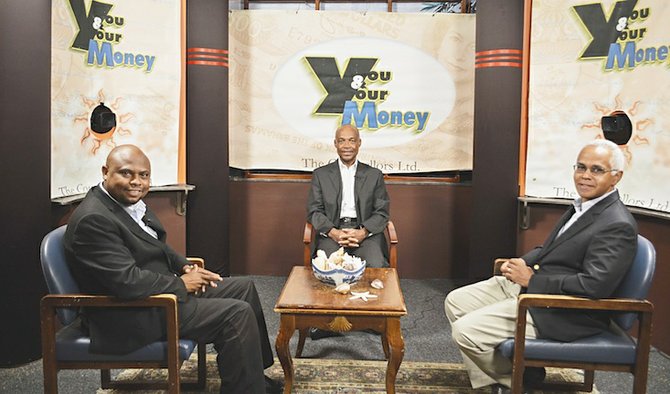NEIL HARTNELL
#Tribune Business Editor
#nhartnell@tribunemedia.net
#Family Island businesses have been left “scared as hell” by a lack of Value-Added Tax (VAT) information, a leading consultant yesterday warning many feared being “taxed out of the market”.
#Mark Turnquest, of Mark A. Turnquest Consulting, urged the Government to “seriously address” the Family Island private sector’s VAT-related concerns, given that these locations were already subject to higher shipping and duty costs than Nassau.
#Revealing that such sentiments had been expressed during recent consultations over the Small and Medium-Sized Business Development Bill, Mr Turnquest said the VAT ‘information vacuum’ had left Family Island businesses “lost” and fearing they could not survive an increased taxation burden.
He, however, backed VAT as the best tax reform option available to the Bahamas, arguing that sales and income-related taxes would not generate the necessary revenues to alleviate the fiscal crisis.
#Nor will collecting all existing taxes on the books generate enough funds, Mr Turnquest said, adding that a direct income tax would also disincentivise Bahamians from working.
#Speaking as he and other Government-appointed consultants move to conclude meetings over the Small and Medium-Sized Business Development Bill, Mr Turnquest told Tribune Business many entrepreneurs were confused by the seeming contradictions between this and VAT.
#“We have never had research of this magnitude before,” he told this newspaper of the Bill consultations.
#“Everything is moving, but not on time. We are expecting to be finished by the end of January with the research and all of that from the Family Islands.”
#Mr Turnquest said logistical difficulties, and problems with getting all Family Island entrepreneurs in the same place at the correct time, had contributed to delays in completing the Bill consultations.
#He added that once this process was concluded, the research findings would be analysed and used to inform both the final Bill and structure for its key agency, the Small and Medium-Sized Business Development Agency (SMEDA).
#“My only concern is that I don’t want the small business owners to feel demoralised and misinformed about VAT,” Mr Turnquest told Tribune Business.
#“When I went to the Family Islands, there was a lot of concern. How can you have SMEDA to encourage small business development, and this VAT adding to the costs of doing business?
#“The medium-sized businesses with around $100,000 turnover have reservations over high taxes,” he added. “VAT information hasn’t reached the Family Islands as yet.
#“So they’re lost and scared as hell over there. The medium-sized businesses are really concerned about their future, and the Government needs to seriously address the Family Islands.”
#Mr Turnquest said all Family Island businesses had to contend with higher shipping and logistical costs compared to Nassau, meaning VAT’s price impact may be even greater there despite the ‘exemption’ for mail boat shipping.
#“All the Family Islands are very weak, and feel very concerned that they’re going to be taxed out of the market,” he told Tribune Business.
#“In Exuma, they’re very concerned about VAT. I don’t know when the Government is going there. They feel they cannot sustain their businesses because there’s too much of a burden from taxation.
#“The Family Islands feel like they’re taking care of themselves. They don’t feel the Government has their best interests at heart in keeping them in business.”
#As a result, Mr Turnquest urged the Christie administration to emphasise the vital role VAT will play in “bringing us out of a hole” created by $400-$500 million fiscal deficits and $5.5 billion national debt.
#He added that the small and medium-sized business community had to realise the Government had only two options: Raise more revenues or send several hundred civil servants home.
#Dismissing the VAT alternatives suggested by the Bahamian private sector and others, Mr Turnquest said the only debate now should be over the appropriate tax rate - 15 per cent, 10 per cent or 7.5 per cent.
#“Collecting all the taxes on the books is not going to make a dent in our deficit,” he added. “It’s not enough, as all monies will go to pay off the debt, deficit and salaries.”
#Suggesting the same outcome would apply to a sales tax, Mr Turnquest said: “Income tax is a tax on employment. Even if you don’t buy anything, you will still be taxed, and VAT is a tax on consumption.
#“A sales tax can’t give you enough money, and an income tax will deter people from working. If you’re making $200 per week and get taxed, that will make you feel as if you shouldn’t be working. From the Government’s perspective, VAT will bring in more than these other taxes.”
#The consultant added that among the main themes expressed by small businesses during the consultation were that the existing development model was weak; the existing government agencies supporting the sector “are weak and not doing what they’re supposed to be doing; there was “too much bureaucracy; and no ‘one-stop shop’ for obtaining Business Licences and other necessary permits.
#Apart from the usual concerns over access to financing and technical support, Mr Turnquest said Bahamian small businesses were also fearful that there was “no real protection” from government whim.
#Using the New Providence Road Improvement Project as an example, he added: “They [businesses] feel that at any minute the Government could do something like that again. I reassured them that this behaviour would not happen again.”
